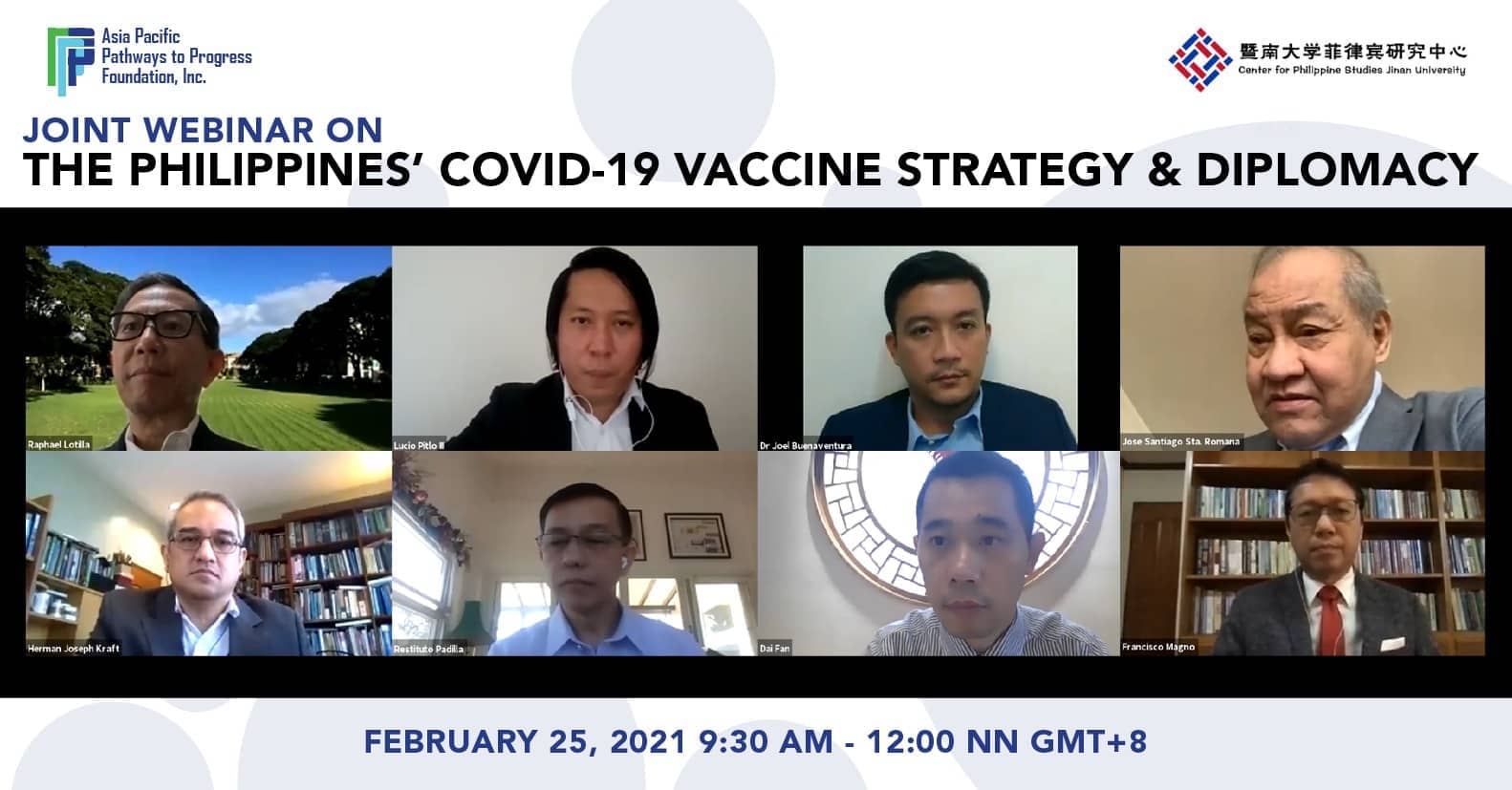Last February 25, Asia Pacific Pathways to Progress Foundation, in partnership with the Center for Philippine Studies of Jinan University, organized a Joint Webinar on The Philippines’ COVID-19 Vaccine Strategy and Diplomacy. The joint webinar sought to discuss the issues surrounding the Philippine Government’s current vaccine procurement and distribution strategy, from the initial processes with the Department of Health, the programs that local government units have implemented for address the pandemic, to the geopolitical context and effects of the Philippines’ COVID strategy.
Ambassador Jose Santiago Sta. Romana, Philippine Ambassador to China and Pathways Fellow, gave the Opening Remarks for the webinar, highlighting vaccine inequity in the distribution of vaccine supplies and contracts between highly developed and developing countries. He also highlighted the milestones in the People’s Republic of China’s COVID-19 pandemic response and vaccine development, and how it can help the Philippines in its own response to the pandemic.
Major General Restituto Padilla (ret.), the Spokesperson of the Philippine Government’s National Task Force Against COVID-19, gave the Keynote Speech for the webinar, where he laid out a comprehensive overview of the government’s COVID response plan, providing the foundation for the rest of the day’s discussion.
Dr. Joel Buenaventura, the Chief Health Program Officer of the Department of Health’s Bureau of International Health Cooperation, provided a situation report of how the world is currently faring against the pandemic, gave a brief overview of the COVID-19 vaccines currently in the market, and discussed the avenues that the Philippines had to gain vaccine supplies. Dr. Francisco Magno of the Jesse M. Robredo Institute of Governance, De La Salle University, highlighted the practices that local government units have implemented as part of their COVID-19 response programs, as well as the policies and guidance that the national government has given to direct and support these programs. Lastly, APPFI Research Fellow Lucio Pitlo III provided a geopolitical angle to the discussions, tackling issues of vaccine supply inequity, vaccine nationalism, and vaccine diplomacy. He emphasized the situation in Southeast Asia, where COVID-19 vaccines from Chinese manufacturers have been released and discussed geopolitical leverage and diplomatic options for the Philippines to increase its own vaccine supply.
To cap the webinar, Dr. Dai Fan, Director of the Center for Philippine Studies of Jinan University, gave the Closing Remarks, where he highlighted the need for better international cooperation to address issues of vaccine supply inequity and vaccine nationalism. He also noted that scholars and academics are key to decreasing vaccine hesitancy and disinformation, which would help in the fight against the pandemic.

